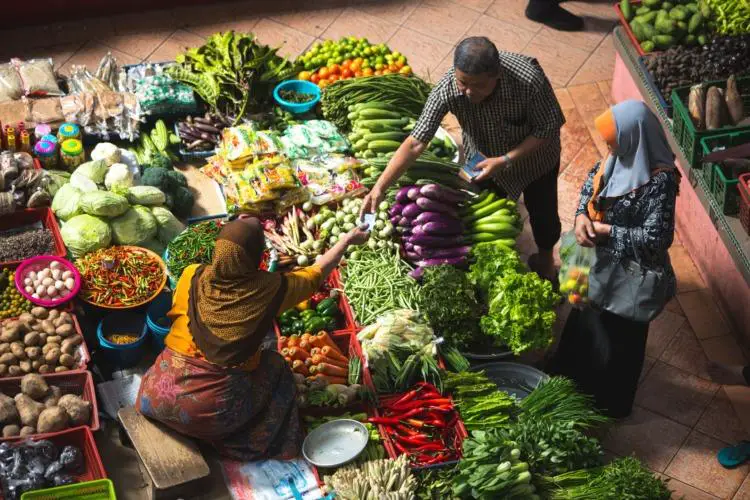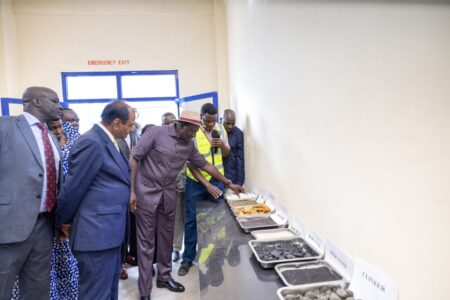- Mars Wrigley plans to roll out a fresh entrepreneurial initiative in Tanzania in 2024 and Rwanda, in 2025.
- The programme has already registered great strides in Kenya where it has been running since 2013, benefiting 1,600 traders, including 700 women.
- Wrigley now says it will recruit another 1,000 entrepreneurs in Kenya before the end of the year, bringing the total to 2,600.
Mars Wrigley, the world’s leading manufacturer of chocolate and chewing gum, has revealed plans to expand its entrepreneurial programme into Tanzania and Rwanda in regional expansion drive. As part of the company’s innovative distribution model, the Maua programme targets low-income consumer market in the region.
Speaking at the company’s factory and head office in Machakos County, Kenya, during at a ceremony to mark the tenth anniversary of Maua, Mars Wrigley General Manager, Sub-Saharan Africa, Ismael Bello said the company will roll out the initiative in Tanzania in 2024 and Rwanda, in 2025.
Mars Wrigley trade plan benefitting 700 Kenyan women
The programme has already seen great strides in Kenya where it has been running since 2013, benefiting 1,600 traders, including 700 women. It currently seeks to support the micro and small enterprises to create jobs and sustainable livelihoods in Kenya.
“Maua has been a phenomenal success in driving our quest to reach the under-served consumer market while at the same time achieving our social and sustainability goals. Hence, the plan to expand the program in Kenya and the region,” Bello, said
Wrigley now says it will recruit another 1,000 entrepreneurs in Kenya before the end of the year, bringing the total to 2,600.
Announcing the expansion plan, Bello noted that the programme has been highly successful with a high retention rate of 85 percent.
Machakos County Governor Wavinya Ndeti lauded Maua as an inspiring model of how private companies can use innovative strategies to create employment and sustainable livelihoods, especially for women and youth, while supporting the growth of micro- and small-scale enterprises.
“I am particularly delighted to note that 4 out of 10 beneficiaries of this noble initiative are women. I urge more companies to emulate Wrigley so that together, we can create meaningful livelihood and business opportunities for our people,” she noted.
Mars Wrigley partners with independent entrepreneurs
Through Maua, Mars Wrigley partners with independent micro-entrepreneurs and micro-distributors to sell the company’s products in informal settlements and rural communities. The overall purpose is to create shared benefits for both the company and communities benefiting from the program.
“With Maua, we seek to not only grow our business, but also create a platform to build both financial and social capital, working with individuals who are passionate about business and improving lives. We look forward to the next 10 years of Maua’s transformative impact,” explained Bello.
Read also: CRDB Bank evolving into a partner for East Africa’s entrepreneurs
As an innovative route-to-market strategy, Maua targets consumers who are hard-to-reach through traditional product distribution channels.
The company recruits and trains small-scale entrepreneurs whom it then supplies with the company’s fast-moving products including some of its notable brands such as Big G, Juicy Fruit, PK and Doublemint.
The company also provides the tools of trade such as backpacks, bicycles and motorbikes to facilitate the traders. The direct beneficiaries of the program include small wholesalers operating stock points, micro- distributors who move the products from the stock points to retail shops and to the hawkers who sell directly to consumers in the streets.
Training on entrepreneurial skills
Mars Wrigley also trains the beneficiaries in basic entrepreneurial skills like record-keeping, branding and business management.
In 2018, Mars Wrigley committed to increase the number of women entrepreneurs in the program. By empowering women with opportunities to earn a decent livelihood, Maua indirectly contributes to the realization of an inclusive and prosperous society.
To measure the impact of the program on society, Mars Wrigley has partnered with Oxford University’s Said Business School and the University of Nairobi.
Prior to launching the programme, the company conducted research that revealed the huge untapped entrepreneurial talent that could be harnessed to grow the company’s business in disadvantaged localities.










